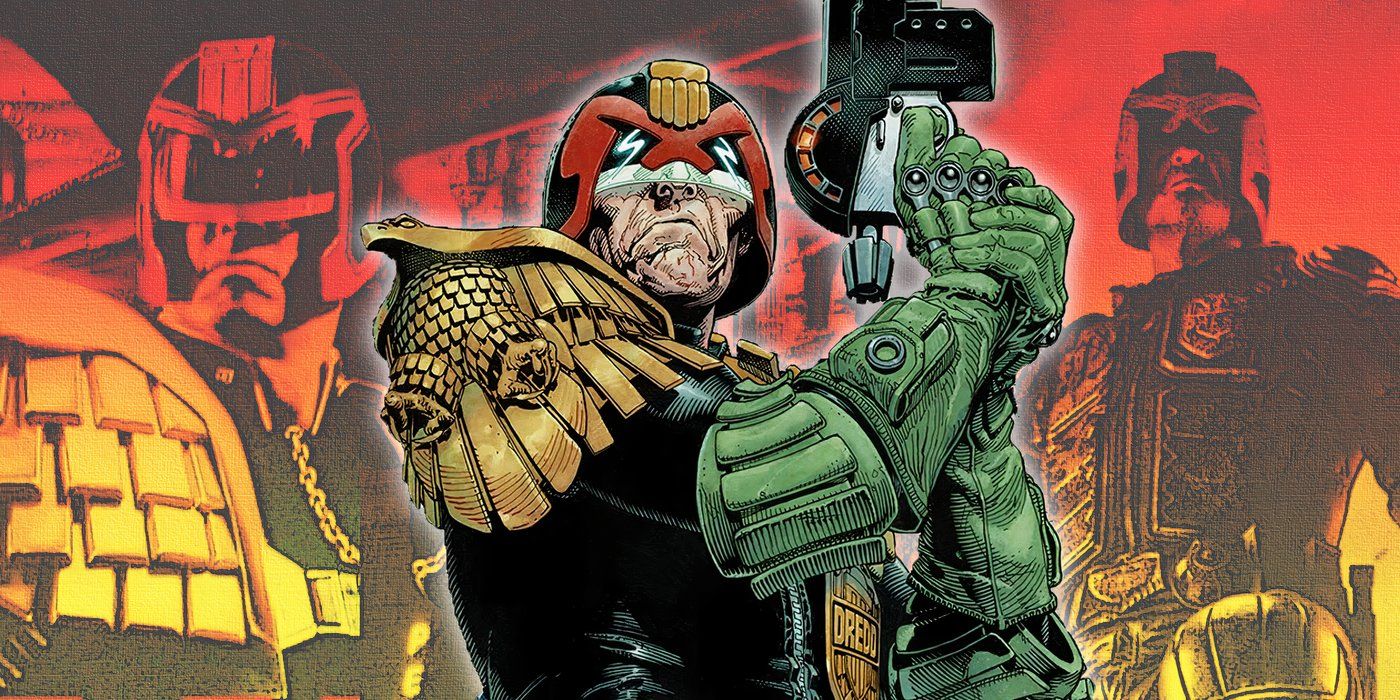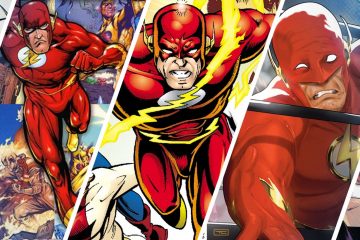Created by John Wagner and Carlos Ezquerra, Judge Dredd first appeared in 2000 AD (Vol. 1) #2 (1977) by Peter Harris, Pat Mills, Kelvin Gosnell, Mike McMahon, and McGowan. In the dystopian setting of Mega-City One, Dredd is a “street judge” authorized to serve as judge, jury, and executioner. As such, the character’s stories often satirize Western culture, emphasizing consumerism, police brutality, and authoritarianism. Judge Dredd has proven to be immensely popular, serving as 2000 AD’s longest-running character, and in 1990, he was granted his own title in the form of the Judge Dredd Megazine.
Given the character’s enduring success, movie adaptations invariably surfaced, the first being 1995’s Sylvester Stallone vehicle Judge Dredd. Unfortunately for fans, the movie was a commercial and critical flop, universally panned for marring the character. Following years of development hell, it wasn’t until 2012 that an unrelated adaptation in the form of Dredd—starring Karl Urban—surfaced. Though still a financial flop, Dredd was far better received by fans and critics alike for its greater adherence to the source material. However, this movie still garnered criticism in some sectors for its depiction of Mega-City One and lack of 2000 AD’s signature satire, leading to another uneven adaptation. As such, fans are still clamoring for a movie that encapsulates everything that makes Judge Dredd so special.
However, the bad indubitably outweighs the good. Though comic-accurate, Judge Dredd’s costume is ridiculous, and the irritatingly unbalanced focus on Rob Schneider’s comic relief character, Herman “Fergee” Ferguson, leads to a dissonant tone. Not only is Sylvester Stallone’s performance wooden and dialed-in, but he constantly removes his helmet, undermining the comic’s symbology of Dredd as a faceless personification of the law.
Created by John Wagner and Carlos Ezquerra, Judge Dredd first appeared in 2000 AD (Vol. 1) #2 (1977) by Peter Harris, Pat Mills, Kelvin Gosnell, Mike McMahon, and McGowan. In the dystopian setting of Mega-City One, Dredd is a “street judge” authorized to serve as judge, jury, and executioner. As such, the character’s stories often satirize Western culture, emphasizing consumerism, police brutality, and authoritarianism. Judge Dredd has proven to be immensely popular, serving as 2000 AD‘s longest-running character, and in 1990, he was granted his own title in the form of the Judge Dredd Megazine.
Given the character’s enduring success, movie adaptations invariably surfaced, the first being 1995’s Sylvester Stallone vehicle Judge Dredd. Unfortunately for fans, the movie was a commercial and critical flop, universally panned for marring the character. Following years of development hell, it wasn’t until 2012 that an unrelated adaptation in the form of Dredd—starring Karl Urban—surfaced. Though still a financial flop, Dredd was far better received by fans and critics alike for its greater adherence to the source material. However, this movie still garnered criticism in some sectors for its depiction of Mega-City One and lack of 2000 AD‘s signature satire, leading to another uneven adaptation. As such, fans are still clamoring for a movie that encapsulates everything that makes Judge Dredd so special.
However, the bad indubitably outweighs the good. Though comic-accurate, Judge Dredd’s costume is ridiculous, and the irritatingly unbalanced focus on Rob Schneider’s comic relief character, Herman “Fergee” Ferguson, leads to a dissonant tone. Not only is Sylvester Stallone’s performance wooden and dialed-in, but he constantly removes his helmet, undermining the comic’s symbology of Dredd as a faceless personification of the law.
#Judge #Dredd #ComicsAccurate #Adaptation
Note:- (Not all news on the site expresses the point of view of the site, but we transmit this news automatically and translate it through programmatic technology on the site and not from a human editor. The content is auto-generated from a syndicated feed.))



